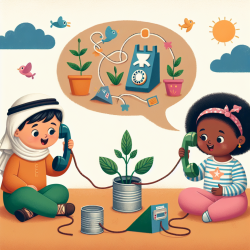Introduction
In the evolving landscape of family dynamics and work commitments, the work-family interface has become a critical area of study, particularly in understanding its impact on children's mental health. The systematic review titled "Work-family interface and children's mental health: a systematic review" by Bilodeau, Mikutra-Cencora, and Quesnel-Vallée offers valuable insights into how work-family conflict and enrichment influence child mental health outcomes.
Key Findings
The systematic review analyzed 25 studies from a pool of 4,146, focusing on the association between parental work-family interface and children's mental health. The findings highlight two primary facets of the work-family interface:
- Work-Family Conflict (WFC): This occurs when work and family responsibilities are incompatible, leading to stress and adverse mental health outcomes in children. The review found that WFC is more associated with internalizing behaviors such as anxiety and depression in children.
- Work-Family Enrichment (WFE): This facet refers to the positive spillover from work to family and vice versa. The review suggests that WFE is linked to positive mental health outcomes in children, although this area is less studied compared to WFC.
Implications for Practitioners
For practitioners working with children and families, these findings underscore the importance of addressing both the negative and positive aspects of the work-family interface. Here are some actionable insights:
- Focus on Parental Support: Encouraging parents to seek support in managing work and family roles can mitigate the negative impacts of WFC.
- Promote Work-Family Enrichment: Practitioners should advocate for policies and practices that enhance WFE, such as flexible work arrangements and family-friendly workplace policies.
- Consider Parental Mental Health: As parental mental health mediates the relationship between work-family interface and child outcomes, supporting parents' mental health is crucial.
Encouraging Further Research
The review highlights the need for more research on work-family enrichment and its potential benefits. Additionally, there is a call for studies that include diverse populations and contexts, as most existing research is concentrated in OECD countries. Practitioners are encouraged to contribute to this field by conducting research that explores these gaps and informs evidence-based interventions.
Conclusion
The work-family interface plays a significant role in shaping children's mental health. By understanding and addressing both the conflicts and enrichments in work-family dynamics, practitioners can better support families in fostering positive mental health outcomes for children. For those interested in delving deeper into this topic, the original research paper provides a comprehensive analysis and can be accessed here.










